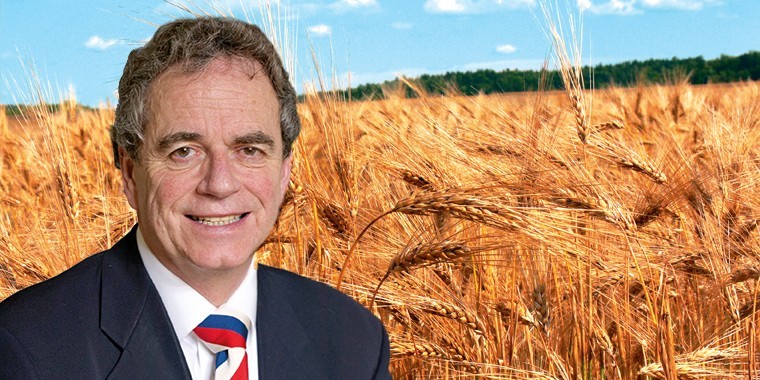Markets have drifted slowly downwards in the last month. But while the trade has been slow, execution has been frenetic. Since storm Desmond we have been trying to load boats at several different ports all around the UK – often trying to load three different commodities at the same time off the same berth. Gale force winds have blown the ships off course.
With few working days left in December, some shipments will have to be postponed until the early New Year. But, the best news, as I forecasted last month is the United States has increased its interest rate which has helped sterling to weaken to an exchange rate of 1.49 to the dollar and 72.80p to the euro. This has helped Openfield to sell more boats for January/February: you see, we were always cheap enough to compete on feed wheat and barley and the weakened currency has given us the edge, for the time being.
The United States Department for Agriculture and DEFRA, keep finding a bit more wheat and maize from last year’s carry in or production, but the trade are too busy executing boats to worry about that. Looking for positives: European Union exports are going well with another 1.1 million tonnes of wheat licences granted last week. Barley is up to 5.1million tonnes exported from the EU so far, but we just need to keep the momentum going.
We have been loading a boat of malting barley over this last weekend with farmers, hauliers and our ship loading staff all giving up their free time to get another boat on its way before the weather closes in. This type of cooperation from our stakeholders is the only way to get this export job done, and we are very grateful for it.
As part of the UK total barley surplus of 2.7 million tonnes, spring malting barley is weighing heavy with its 500,000 metric tonnes surplus over domestic use. Had the Chinese been playing ball and taking the big quantities from France, like they did last year, we could have been more confident in shipping most of it as malting with a premium. Premiums on spring barley are only £10 over feed reflecting the fact that UK maltsters are fully bought, apart from rejection replacements until the 2016 harvest.
So as small as it is, that malting premium could erode further, with some malting finishing up on big feed boats later in the year. This is why a large number of spring malting growers are committing themselves to forward values of £121/£122 for October/November 2016 before planting the crop as this represents a good premium over the old crop value. Also with DEFRA suggesting a 10% increase in spring barley plantings, it would lock in margin if you are able to repeat the yields of the last two years.
So for now the trade are more interested in filling boats than buying anymore grain. Oil and freight are cheap and there are some sizeable short positions held by international shippers and hedge funds. When they want to buy as the largest exporter we have to make the sale and then rely on our committed and commercial grain suppliers to back us up. It may be you could get the call over the next two weeks, so be prepared to sell and load quick. You see the backdrop to this remains: record crops, record stocks, level demand. With the high record temperatures there is no winter kill this year, anywhere. So there can be no problems with the planted crops anywhere in the world yet. Even the great lakes in Canada are not frozen yet. Black Sea ports are ice free and still loading cheap grain all over the world. The downside of this high temperature is beetles proliferating in stores. So have a good look before you load anything. If you find bugs fumigation is the only reliable way to deal with the infestation as spraying will not eradicate eggs laid in the grain.




